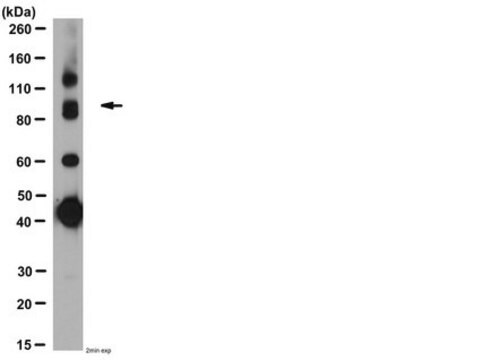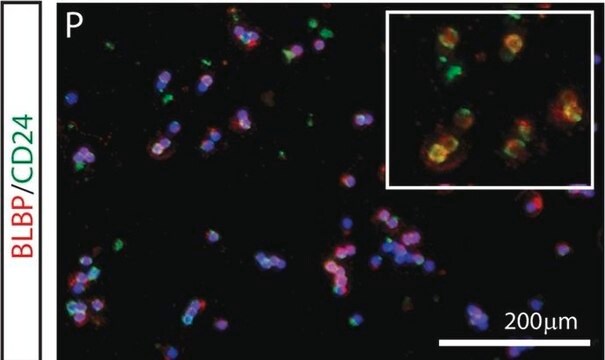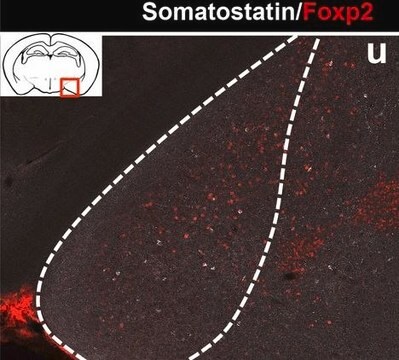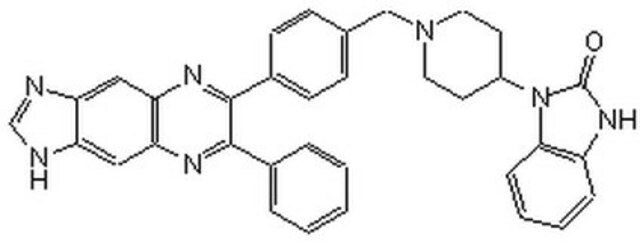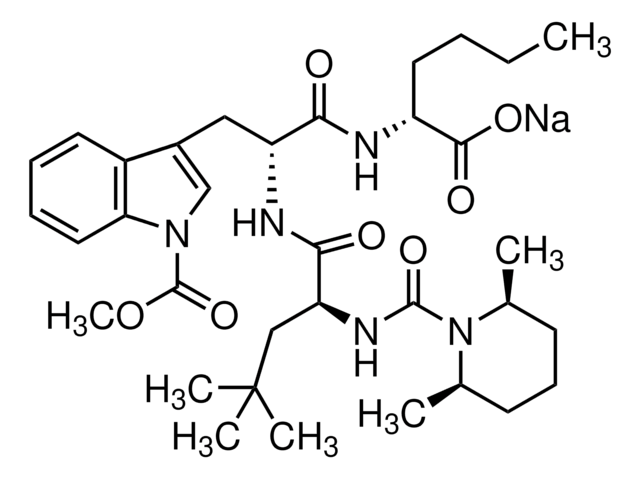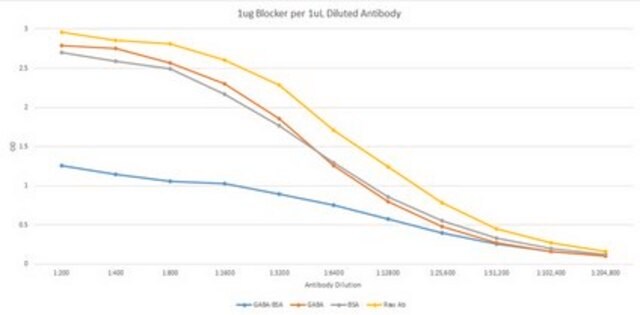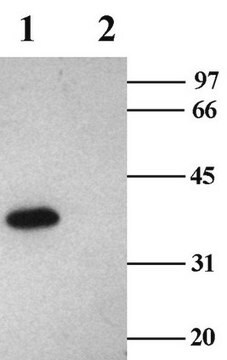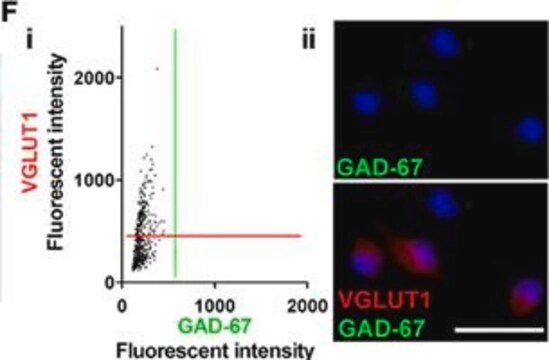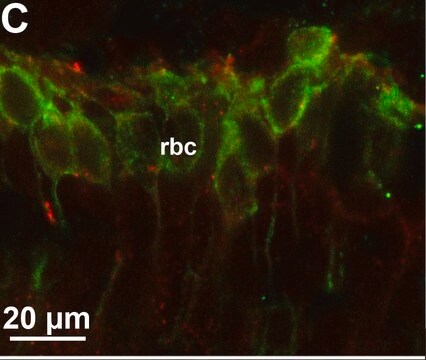AB5360
Anti-Potassium Channel Kv4.2 Antibody
Chemicon®, from rabbit
About This Item
Productos recomendados
origen biológico
rabbit
Nivel de calidad
forma del anticuerpo
affinity purified immunoglobulin
tipo de anticuerpo
primary antibodies
clon
polyclonal
purificado por
affinity chromatography
reactividad de especies
rat
fabricante / nombre comercial
Chemicon®
técnicas
western blot: suitable
Nº de acceso NCBI
Nº de acceso UniProt
Condiciones de envío
wet ice
modificación del objetivo postraduccional
unmodified
Información sobre el gen
human ... KCND2(3751)
Descripción general
Especificidad
SPECIES REACTIVITIES: Rat. Reactivity with other species has not yet been tested. It is expected to work on mouse and human because the immunogen sequence is highly homologous (15/16 residues identical).
Inmunógeno
Aplicación
Neuroscience
Ion Channels & Transporters
Immunohistochemistry on rat brain sections.
Immunoprecipitation Dilutions should be made using a carrier protein such as BSA (1-3%).
Optimal working dilutions must be determined by the end user.
Descripción de destino
Forma física
Almacenamiento y estabilidad
Nota de análisis
CONTROL ANTIGEN: Included free of charge with the antibody is 40 μg of control antigen (lyophilized powder). The stock solution of the antigen can be made up using 100 μL of sterile distilled water. For negative control, preincubate 1 μg of purified peptide with 1 μg of antibody for one hour at room temperature. Optimal concentrations must be determined by the end user.
Otras notas
Información legal
Cláusula de descargo de responsabilidad
¿No encuentra el producto adecuado?
Pruebe nuestro Herramienta de selección de productos.
Frases de peligro
Consejos de prudencia
Clasificaciones de peligro
Aquatic Chronic 3
Código de clase de almacenamiento
11 - Combustible Solids
Clase de riesgo para el agua (WGK)
WGK 3
Certificados de análisis (COA)
Busque Certificados de análisis (COA) introduciendo el número de lote del producto. Los números de lote se encuentran en la etiqueta del producto después de las palabras «Lot» o «Batch»
¿Ya tiene este producto?
Encuentre la documentación para los productos que ha comprado recientemente en la Biblioteca de documentos.
Nuestro equipo de científicos tiene experiencia en todas las áreas de investigación: Ciencias de la vida, Ciencia de los materiales, Síntesis química, Cromatografía, Analítica y muchas otras.
Póngase en contacto con el Servicio técnico